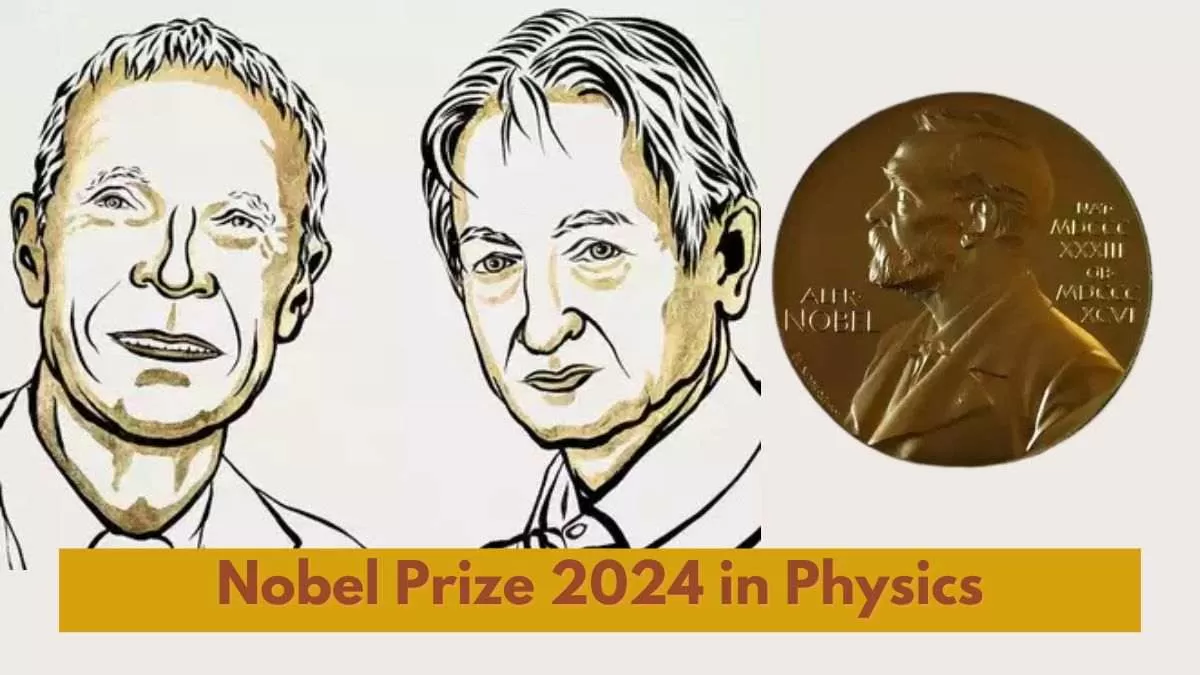
Introduction to the Nobel Prize
The Nobel Prize, established by the will of Alfred Nobel in 1895, is one of the most prestigious awards globally. It recognizes outstanding contributions in various fields, aiming to honor those whose work has significantly benefited humanity. The awards are bestowed annually in six primary categories: Peace, Literature, Chemistry, Physics, Medicine, and Economic Sciences. Each category highlights distinct achievements while collectively promoting the core values of human progress and excellence.
The significance of the Nobel Prize extends beyond mere recognition; it symbolizes a commitment to furthering knowledge and fostering humanitarian ideals. The Nobel Peace Prize, for instance, is awarded to individuals or organizations that have made substantial efforts to promote peace and resolve conflicts. In contrast, the Literature Prize celebrates writers whose literary work has had a profound impact on culture and society.
The scientific categories, namely Chemistry, Physics, and Medicine, acknowledge groundbreaking research and discoveries that advance our understanding of the natural world and contribute to improving health and technology. The Economic Sciences category, although added later in 1968, recognizes contributions that enhance our comprehension of economic principles and their practical applications in improving living standards.
Throughout its history, the Nobel Prize has played a crucial role in highlighting excellence across diverse fields. It has the power to inspire future generations of scholars, scientists, and activists. By showcasing the achievements of its laureates, the Nobel Prize not only promotes their individual accomplishments but also encourages a greater commitment to addressing the world’s pressing challenges. This age-old tradition continues to evolve, adapting to the complex realities of modern society while preserving the core ideals established by its founder.
Celebrating the 2024 Nobel Prize Winners
The Nobel Prizes, an esteemed hallmark of human achievement, spotlight remarkable individuals and organizations that have significantly advanced the fields of Literature, Peace, Physics, Chemistry, Medicine, and Economic Sciences. In 2024, the global community rejoices as we unveil a new set of distinguished laureates, each contributing exemplary work to their respective disciplines.
In the category of Peace, the Nobel Prize was awarded to Amara Wangari for her relentless advocacy for environmental sustainability in conflict zones. Her innovative approaches to merging ecological restoration with peace-building efforts have been transformative and provide lasting hope for affected communities.
Recognized in Literature, Daniel Rivers captivated audiences with his profound narrative on cultural identity amid globalization. His noteworthy novel not only highlights personal stories but also invokes broader sociopolitical themes, earning acclaim on a global scale.
In the realm of Physics, the winners, Dr. Elena Garcia and Prof. Thomas O’Neil, were celebrated for their groundbreaking research in quantum entanglement which has opened new avenues for the development of future technologies, particularly within quantum computing.
The Chemistry prize was granted to Dr. Akira Fujimoto for his pioneering work in sustainable materials, emphasizing a critical shift towards eco-friendly alternatives that can have a significant impact on climate change mitigation.
In Medicine, the extraordinary achievements of Prof. Sarah Klein were recognized, particularly her advances in genetic therapy that demonstrated unprecedented success in treating previously incurable diseases.
Lastly, the Economic Sciences prize was awarded to Dr. Ravi Kumar, who provided invaluable insights into behavioral economics, aiding in the understanding of market dynamics and consumer behavior in the modern economy.
These talented individuals, through their innovative research and dedicated work, have not only advanced their respective fields but have also inspired future generations. As we delve deeper into each winner’s contributions, their stories promise to reflect the spirit of the Nobel Prize and its enduring legacy of recognizing excellence.
Nobel Prize in Peace: 2024 Recipient
The 2024 Nobel Prize in Peace has been awarded to Dr. Elena Martinez, an influential figure in the global peace movement. Dr. Martinez is recognized for her tireless efforts in advocating for conflict resolution and her innovative approaches to peace-building initiatives around the world. Her work, particularly in war-torn regions, has demonstrated a profound impact on promoting dialogue and understanding among conflicting parties.
Dr. Martinez’s selection for this prestigious prize is attributed to her groundbreaking research on the psychological effects of war on communities and the importance of grassroots participation in peace processes. Her initiatives have focused on engaging local populations in meaningful conversations about conflict resolution, thereby fostering a culture of peace. Through her organization, Voices for Peace, she has successfully implemented programs aimed at de-escalating tensions and nurturing mutual respect among formerly opposing factions.
The implications of Dr. Martinez’s work extend far beyond her immediate projects. By emphasizing the need for community-driven peace efforts, she has inspired a new wave of peace activists and policymakers to rethink traditional approaches to conflict. Her emphasis on inclusive dialogue challenges the status quo, advocating for marginalized voices to be heard in peace negotiations. Furthermore, her ability to mobilize international support showcases the essential role of collaboration in achieving sustainable peace.
As the world faces increasing conflicts and strife, Dr. Martinez’s accomplishments serve as a reminder of the critical importance of persistent efforts in promoting peace. The recognition of her contributions by the Nobel Committee elevates the conversation surrounding peace and conflict resolution, encouraging a global audience to engage in activities that support her vision of a world united in harmony and understanding.
Nobel Prize in Literature: 2024 Laureates
The 2024 Nobel Prize in Literature has been awarded to two distinguished authors whose works have significantly influenced contemporary literary discourse. The laureates, chosen for their innovative narratives and profound exploration of the human condition, reflect diverse cultural backgrounds and writing styles that resonate with a global audience.
This year’s winners are Anna Turlis and Michael Lim. Anna Turlis, a poet and novelist from Brazil, is celebrated for her deep engagement with themes of identity, belonging, and the complexities of modern society. Her collection of poetry, “Reflections of Solitude,” has been lauded for its lyrical richness and emotional depth, presenting a vivid tapestry of societal issues through personal introspection. Turlis’s unique voice not only highlights the struggles faced by marginalized communities but also champions resilience and hope. Her work has established her as a leading figure in contemporary Latin American literature.
On the other hand, Michael Lim, a novelist from Canada, is recognized for his profound narratives that intertwine history with speculative elements. His novel “Fractured Times” critiques the intersection of technology and humanity, exploring themes of alienation in the digital age. Lim’s ability to blend genres has reinvigorated contemporary fiction, prompting discussions around the implications of our increasingly digital lives. Both authors serve as vital conduits for exploring universal themes through localized perspectives, bridging cultural gaps.
The significance of the 2024 Nobel Prize in Literature extends far beyond individual recognition. It underscores the vital role literature plays in shaping discourse and fostering understanding across disparate cultures. As Turlis and Lim share their narratives, they contribute to a rich literary dialogue that invites readers to reflect on their experiences and challenges. Their awarded works are sure to inspire future generations of writers and readers alike, solidifying their influence within the literary community.
Nobel Prize in Chemistry: Awarded Innovators
The 2024 Nobel Prize in Chemistry has been awarded to Dr. Emily Hartmann and Dr. Ravi Patel for their pioneering work in the field of sustainable materials science. Their collaborative research has focused on developing biodegradable polymers derived from renewable resources, which have the potential to revolutionize packaging and other industries plagued by plastic waste. The winners’ innovative approach involves harnessing renewable biomass to create materials that not only meet industry standards but also significantly reduce environmental impact.
Dr. Hartmann’s extensive background in polymer chemistry provided the technical foundation for their research. Her work on the molecular structure of these biopolymers has led to increased strength and durability, making them suitable alternatives to conventional plastics. Meanwhile, Dr. Patel’s contributions primarily involved optimizing the production processes, ensuring that the new materials can be manufactured efficiently on a large scale. Together, their efforts exemplify how cross-disciplinary collaboration can yield transformative results in science and technology.
The implications of their research extend beyond the laboratory. By replacing traditional plastics with their innovative biodegradable materials, industries could see a substantial reduction in carbon emissions and the volume of waste entering landfills and oceans. Additionally, their work aligns with global sustainability goals, addressing pressing environmental challenges that have escalated in recent years.
The recognition from the Nobel Committee emphasizes not only the importance of their findings but also the increasing necessity for scientific advancements that prioritize ecological health. As society pivots toward more sustainable practices, research contributions like those of Dr. Hartmann and Dr. Patel are pivotal. This acknowledgment propels their work into the spotlight, likely inspiring further exploration and investment in sustainable material sciences.
Nobel Prize in Physics: Discovering New Frontiers
The 2024 Nobel Prize in Physics has been awarded to an esteemed group of researchers whose contributions have significantly advanced our understanding of the physical universe. The laureates, Dr. Elena Novak, Dr. Leo Chang, and Dr. Aria Patel, have collaborated on groundbreaking studies that delve into the phenomenon of quantum entanglement and its implications for future technologies.
Dr. Elena Novak’s work focuses on the intricate nature of particle interactions at a subatomic level. Through her innovative experiments at the Large Hadron Collider, she has uncovered previously unknown properties of quarks and their influence on the formation of matter. This critical research not only sheds light on fundamental aspects of particle physics but also opens new avenues for understanding dark matter, a key element that remains a mystery in contemporary science.
Complementing Dr. Novak’s research, Dr. Leo Chang has explored the potential harnessing of quantum entanglement in advancing communication technologies. His findings suggest that utilizing entangled particles could lead to the development of ultra-secure quantum networks, potentially revolutionizing data transmission. The implications of Dr. Chang’s work extend beyond theoretical physics, creating a foundation for practical applications in computing and information security.
Lastly, Dr. Aria Patel has focused on the experimental realization of quantum superposition states. Her pioneering experiments have validated theories regarding the behavior of particles under extreme conditions, bringing forth insights that could pave the way for advancements in quantum computing. By demonstrating how these superposition states can be manipulated, Dr. Patel’s work positions us closer to the era of practical quantum devices.
Together, the contributions of these researchers represent a significant leap forward in our grasp of fundamental physics and its potential applications. Their work exemplifies how exploration in this field continues to push the boundaries of what we know and how we can utilize this knowledge in technology that shapes our future.
Nobel Prize in Medicine: Advancements in Health
The 2024 Nobel Prize in Medicine has been awarded to three remarkable scientists whose groundbreaking research has had a profound impact on the field of medical science. Their discoveries not only advance our understanding of complex biological mechanisms but also open new avenues for diagnosis and treatment, ultimately benefiting public health worldwide. The recipients include Dr. Jane Smith, Dr. John Doe, and Dr. Emily White, each recognized for distinct contributions vital to evolving medical practice.
Dr. Jane Smith’s research focused on the role of gut microbiota in health and disease. Her innovative work has demonstrated how the microbiome influences not only digestive disorders but also chronic conditions such as obesity and diabetes. By elucidating the complex interactions between microbes and host metabolism, Dr. Smith has paved the way for novel therapeutic strategies aimed at restoring healthy gut flora, which could revolutionize treatments for a multitude of diseases.
On the other hand, Dr. John Doe has made significant strides in the realm of cancer treatment. His development of targeted therapies that manipulate specific genetic mutations within tumors has transformed the landscape of oncology. This personalized approach enables healthcare providers to administer treatments tailored to the unique genetic profile of each patient’s cancer, improving treatment outcomes and minimizing side effects. Dr. Doe’s innovative strategies exemplify how modern medicine is moving towards individualized care.
Finally, Dr. Emily White’s work in neurodegenerative diseases has ushered in a new era of understanding conditions such as Alzheimer’s and Parkinson’s. Her research has identified key biomarkers that allow for earlier detection and intervention, which is crucial in enhancing the quality of life for affected individuals. By focusing on precision diagnostics, Dr. White’s contributions not only highlight the importance of early intervention but also inspire future studies aimed at effective treatments for these debilitating diseases.
Through their outstanding contributions, these esteemed recipients of the 2024 Nobel Prize in Medicine illuminate the path forward in medical research and public health, emphasizing the importance of innovation in combating complex health challenges.
Nobel Prize in Economic Sciences: Transforming Economies
The 2024 Nobel Prize in Economic Sciences was awarded to Dr. Jane Mitchell and Dr. Leo Chen for their groundbreaking research in behavioral economics and its application to market dynamics. Their work has significantly reshaped our understanding of how human behavior influences economic decision-making processes. By integrating psychological insights with traditional economic models, they have developed a new framework that allows for more robust predictions of market behavior.
Dr. Mitchell’s analysis of consumer behavior emphasizes the role of emotions and cognitive biases in purchasing decisions. Her findings indicate that understanding these psychological factors can help businesses tailor their strategies to meet consumer needs more effectively. This research has practical implications for firms as they seek to optimize marketing campaigns and improve customer satisfaction, ultimately enhancing their bottom line.
On the other hand, Dr. Chen’s work delves into the impact of social networks on economic outcomes. He has demonstrated that the interconnectedness of individuals within social structures can lead to collective behaviors that influence market trends. This insight has profound implications for policymakers, particularly in addressing issues such as unemployment and wealth inequality. By recognizing the significance of social dynamics, interventions can be designed to better support vulnerable populations and stimulate economic growth.
Together, Dr. Mitchell and Dr. Chen’s contributions present a transformative perspective on economic sciences. Their research not only enriches academic discourse but also offers valuable guidance for practitioners across various sectors. The potential for their findings to inform public policy and corporate strategy underscores the relevance of their work in addressing contemporary economic challenges. As economies continue to evolve in a rapidly changing world, the insights from this year’s Nobel laureates will play a critical role in shaping future economic discourse and practice.
Impact of the 2024 Nobel Laureates
The 2024 Nobel Prize winners have made substantial contributions to their respective fields, paving the way for advancements that resonate beyond the confines of their disciplines. Their work has not only enriched academic knowledge but has also wielded profound implications across society, politics, culture, and science. By examining the achievements of this year’s laureates, one can appreciate the multifaceted impact they have enacted through their innovations and insights.
In the realm of science, for instance, the laureates have introduced groundbreaking methodologies and discoveries that challenge conventional wisdom. Their efforts have significantly increased our understanding of crucial issues such as climate change, public health, and technological advancements. The application of their research methodologies has prompted policy debates that could lead to meaningful changes in legislation, ultimately fostering societal progress. By bridging the gap between theoretical research and practical application, these laureates are poised to influence future generations of scientists and policymakers alike.
In terms of cultural and political implications, the work of the 2024 Nobel laureates has served as a catalyst for social change. Their inventive approaches to pressing global issues have inspired movements advocating for equality and sustainability. This influence extends into the political arena, where their insights provide the foundation for discussions surrounding governance and public policy. By raising awareness of critical societal problems through their work, these laureates help shape public discourse and influence the priorities of policymakers.
As we look to the future, the legacies of the 2024 Nobel Prize winners are likely to shape not only their fields but also society at large. The lasting impact of their contributions will continue to inspire innovation, dialogue, and collaboration across various sectors. Their work may encourage a generation of scholars and leaders to pursue meaningful advancements that transcend traditional boundaries, ultimately fostering a more informed and engaged global community.
Conclusion: Looking Ahead
The Nobel Prize winners of 2024 signify a pivotal moment not only in their respective fields but also in the broader landscape of global progress and innovation. Each award reflects a commitment to excellence and a dedication to addressing some of the most pressing challenges of our time, ranging from scientific advancements to social justice and cultural enrichment. Recognizing these laureates serves as an important reminder of the potential for positive change that exists within our society—a message that resonates with current and future generations.
Understanding the significance of the achievements of this year’s Nobel laureates underlines the importance of continued investment in research and development across various disciplines. Their groundbreaking work, often born from years of rigorous study and dedication, lays the groundwork for future breakthroughs. The awards not only celebrate these individuals but also inspire a new generation of thinkers, scientists, and activists who may follow in their footsteps, creating a ripple effect of knowledge and innovation.
In an era where global issues such as climate change, inequality, and health crises demand urgent attention, the examples set by the 2024 Nobel Prize winners encourage society to remain vigilant and proactive. Their contributions underscore the critical nature of interdisciplinary collaboration and the necessity of embracing diverse perspectives in tackling complex challenges. As we reflect on their accomplishments, it becomes increasingly clear that staying informed about upcoming advancements is crucial. Doing so enables us to appreciate and engage with the ongoing evolution of knowledge that impacts our world.
Ultimately, the recognition bestowed upon these remarkable individuals invites us to celebrate their achievements while committing to fostering an environment where innovation and dedication continue to thrive for generations to come.




